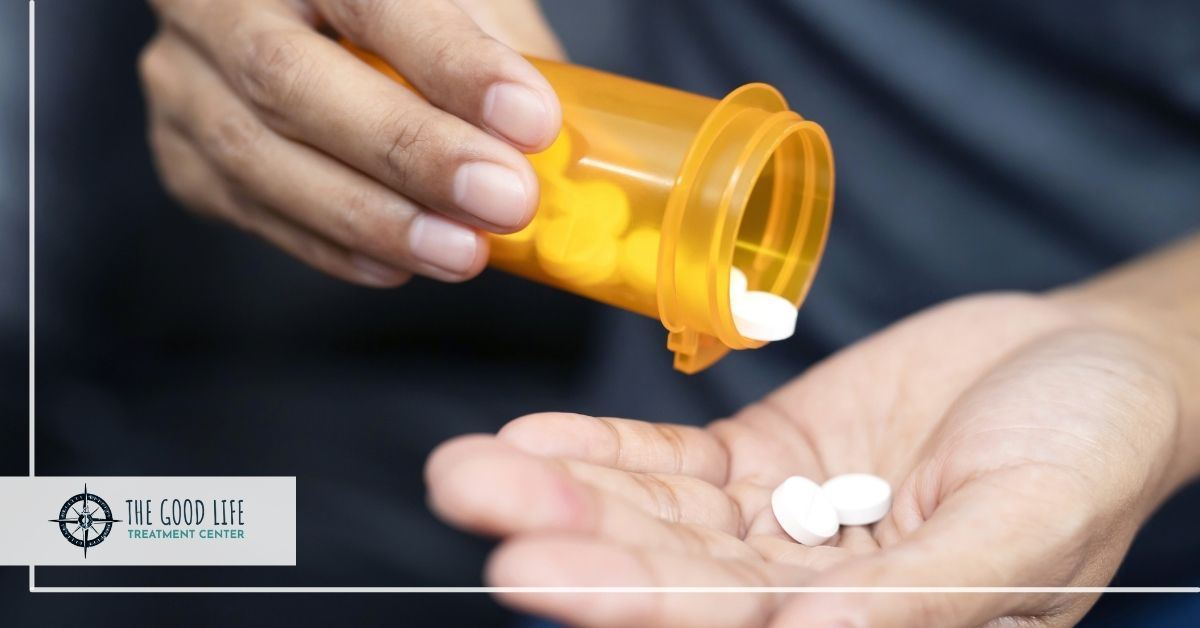Prescription Drug Abuse
The abuse of prescription medications is a public health issue running rampant in the United States, with over 18 million people misusing opioids, central nervous system (CNS) depressants, and stimulants each year. In recognition of Medicine Abuse Awareness Month, the experts at The Good Life Treatment Center are here to shed some light on prescription drug misuse, abuse, and addiction.
Commonly Abused Prescription Medications
Medication abuse means that an individual is taking a given medication differently than it was prescribed. This includes taking more than a given dosage, taking someone else’s medication, or taking medication for its side effects.
The three classes of medication that are most commonly abused include:
Opioids
Opioids are synthetic drugs that were created in a lab, not to be confused with opiates—which are derived from the naturally occurring poppy plant and its seeds. They were created to stimulate the opioid receptors within the brain, which affect the feelings of pleasure and pain. Activating these receptors can affect:
- Stress levels
- Pain levels
- Respiratory rate
- Temperature
- Mood
When it comes to opioids, people aren’t typically using the drug recreationally when they become addicted. More often than not, they were prescribed medication by their doctor to help manage the symptoms associated with chronic pain.
Some examples of opioids include:
- Heroin
- Oxycodone
- Hydrocodone
- Fentanyl
- Methadone
Central Nervous System Depressants
Central Nervous System (CNS) Depressants are medications used to treat anxiety, panic disorders, and sleep disorders. This is because CNS depressants increase the activity of gamma-aminobutyric acid (GABA), which is a chemical that inhibits brain activity.
Some examples of CNS depressants include:
- Valium
- Xanax
- Ambien
- Lunesta
- Luminal
- Nembutal
Stimulants
Prescription stimulants are drugs that are used to treat attention deficit hyperactivity disorder (ADHD) and narcolepsy. Stimulants increase dopamine and norepinephrine activity within the brain, which reinforce rewarding behaviors. Their main effects include increased:
- Alertness
- Attention
- Concentration
- Energy levels
Commonly abused stimulants include:
- Adderall
- Ritalin
- Dexedrine
How Treatment Can Help
When it comes to addressing prescription drug addiction, it can be more difficult to quit and lead a sober lifestyle compared to other forms of addiction. Oftentimes, a combination of medical assistance, addiction treatment, and therapy is needed in order to achieve long-term recovery.
If you still feel apprehensive about seeking help from professionals, here are a few reasons for heading to a treatment program to help you walk the path toward recovery and wellness.
It Can Save Your Life
About 70,000 Americans die from illicit and prescription drug-related overdose each year. With overdose-related deaths continuing to increase each year, it is important for people struggling with drug addiction to seek the professional treatment they need, as it can become a matter of life and death.
You’ll Meet People Who Understand Your Struggle
For many struggling with prescription drug abuse and addiction issues, their drug habits may have started off as a legitimate way to combat chronic pain. However, due to the addictive nature of certain medications, proper use can develop into abuse and addiction over time.
While this can be difficult for many people in your everyday life to understand the emotional and physical throws of addiction, those you encounter during treatment get it because they’ve gone through it too. Being around professionals and peers who truly understand you can help you to feel less alone on this journey toward sobriety.
There’s Nothing to Lose
When you feel like you’ve tried everything to overcome your addiction issues on your own, it can seem daunting to seek another course of treatment. However, with a shift in perspective, it can prove to be beneficial.
By seeking professional and guided addiction treatment, you have nothing to lose and everything to gain. From learning healthy coping mechanisms to supporting your emotional health and getting the medical attention you need—treatment can help bring you the breakthrough you’re looking for.
Seeking Help at The Good Life Treatment Center
At The Good Life Treatment Center, we’re a different kind of treatment center—we believe in the treatment and recovery of the body, mind, and spirit. We’re committed to working with you to help remove the burdens of shame and guilt that addiction so often brings. We think there’s a better, freer way to live life.
To learn more about The Good Life Treatment Center, call (561) 250-8552 or reach out to us online today!





